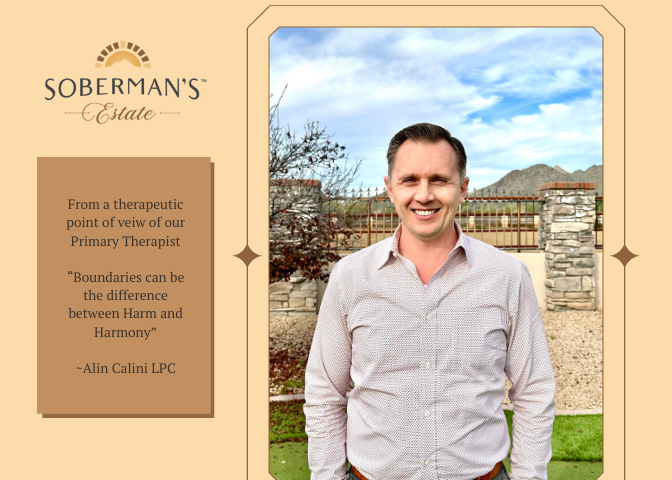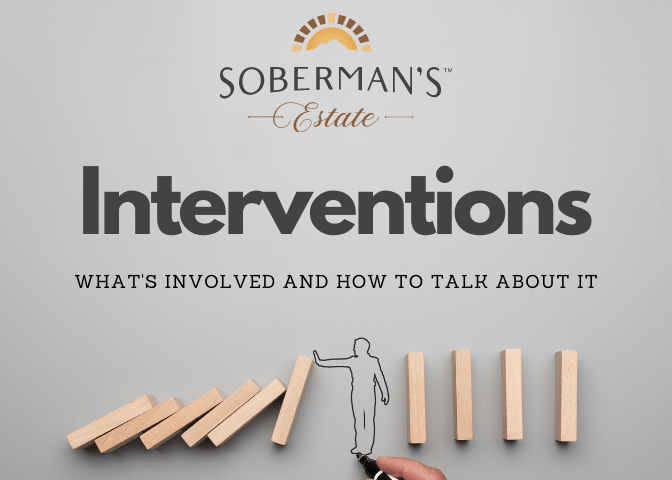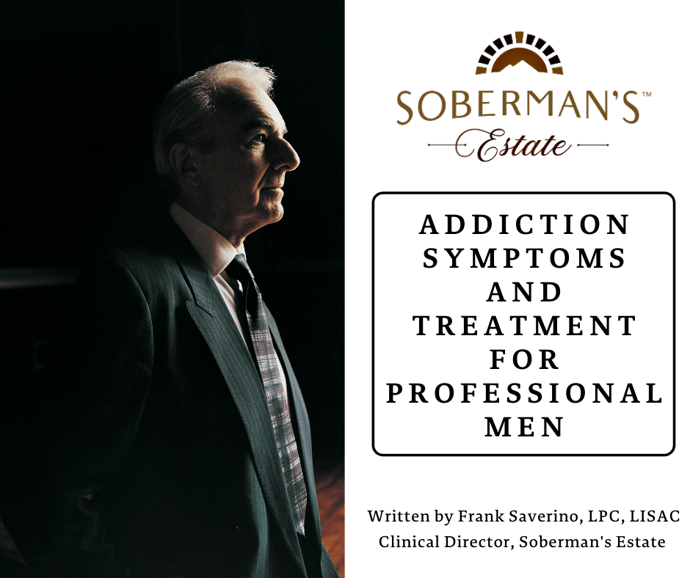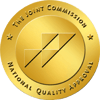As Thanksgiving approaches, it’s natural to reflect on gratitude—but for those in recovery, this season can be challenging. At Soberman’s Estate, we believe in celebrating Thanksgiving in ways that reinforce strength, growth, and authenticity in sobriety. Here are some unique strategies to approach Thanksgiving with resilience and gratitude.
- Home
- >
- The Estate News & Blog
Thanksgiving in Recovery: Unique Tips for a Resilient Holiday
Topics: Recovery, Healthy, family, Resourses, Sobriety tips
Setting Healthy Boundaries With Family and Friends
Recovery is more than just a journey of self-transformation, it’s one of redefining relationships with family and friends. At Soberman’s Estate, the importance of setting boundaries is emphasized as a critical step toward sustainable recovery. Boundaries are the invisible lines we draw to protect our well-being and respect our needs during the delicate phases of recovery.
Alin Calini LPC Primary Therapist
The Need for Boundaries in Recovery:
During treatment, men are often vulnerable to external influences. Old patterns of interaction with loved ones may trigger a relapse or hinder progress. Establishing boundaries is therefore not about isolation; it's about creating an environment conducive to healing. Boundaries allow individuals to disconnect from unhealthy relationships and behaviors and provide space for growth.
How Boundaries Aid Recovery:
- Preventing Burnout: By saying no to excessive demands from others, men in recovery can conserve their energy and focus on their healing process.
- Reducing Stress: Clear boundaries minimize stressful interactions, reducing the risk of relapse due to emotional strain.
- Building Self-Esteem: When individuals set and maintain boundaries, they affirm their self-worth and gain confidence in their decision-making.
- Improving Relationships: Paradoxically, boundaries can strengthen relationships by fostering respect and understanding between the individual and their loved ones.
- Encouraging Independence: Learning to set boundaries is a step toward autonomy, an essential aspect of life post-recovery.
Setting Boundaries with Family:
Family dynamics can be complex, and it's not uncommon for family members to inadvertently hinder the recovery process. Open communication is key. Men are encouraged to express their needs calmly and clearly, without blame. It's important to articulate what behaviors are acceptable and which are not, and to stand firm on these decisions.
Setting Boundaries with Friends:
Friendships can also challenge recovery, especially if those friendships were formed around substance use. It's crucial to identify which relationships are supportive of recovery and which are detrimental. This may mean taking a break or ending friendships that pose a risk to sobriety.
Setting boundaries is an empowering practice that is vital for recovery. It's a skill that when learned and embodied, will give men the ability to maintain healthy boundaries which will serve them well in all facets of life, and aid them in their journey of recovery.
Celebrating Father's Day: Supporting Dads in Recovery
At Soberman’s Estate, we are privileged to be under the stewardship of extraordinary fathers whose dedication and commitment we aspire to acknowledge and honor, not just today, but each and every day. Among these remarkable individuals, we wish to extend our heartfelt acknowledgement to our esteemed Founding Father, Mitch Prager. Mitch, aside from being the proud parent to two wonderful daughters, is also the visionary who breathed life into the establishment of Soberman’s Estate, which he affectionately refers to as his “baby”. This unique and extraordinary sanctuary serves as a transformative haven where men in recovery can genuinely embrace and realize their full potential as outstanding fathers, nurturing lasting family relationships.
Topics: Recovery, Soberman's Estate, family
A Time for Renewal: Celebrating Easter at Soberman's Estate
Topics: family
The American Addiction Crisis is a Societal Failure Not a Personal Failure
The founding of Soberman’s Estate was inspired by the loss of two men, including the owner’s brother and best friend. Mitch Prager’s best friend was Dr. Jerry Josen, and we’re pleased to share this article written by Dr. Josen’s daughter, Rachel Josen.
Topics: Addiction, Functioning Alcoholic, Professional, Treatment, Functioning Addict, Substance Abuse, Doctor, family
Is My Husband an Alcoholic? Here's What You Need to Know.
Maybe your husband or loved one is exhibiting questionable behavior related to alcohol, and it doesn't feel right. Know that you are not alone. 12.7% of American adults have an alcohol use disorder, colloquially known as alcoholism. We’re going to talk about signs you’re in a relationship with an addict, as well as strategies to cope and heal.
Topics: Addiction, Executives, Functioning Alcoholic, Professional, Treatment, Functioning Addict, Recovery, Substance Abuse, Employment, Doctor, Physicians, Soberman's Estate, family, Intervention
I was struggling with the appropriate words to give to a counterpart as they worked on a blog focused on addiction and relationships. They had a section devoted to intervention and wanted to include a couple names of interventionists as resources to offer the reader. I could not possibly commit to two or even 10 names of professionals, not because I do not know and trust ten individuals, but rather because I know and trust hundreds.
Topics: Addiction, Executives, Functioning Alcoholic, Professional, Recovery, Substance Abuse, Safety, family, Intervention
The team members at Soberman’s Estate enjoy a fun, functional, family work environment. Sometimes, this means bringing your dog to work! Some staff members bring their dogs to work every day! Not only do the pups bring joy to the staff, but they also bring numerous healing benefits to clients.
Topics: Addiction, Executives, Professional, Treatment, Recovery, Alcoholism, family
Addiction Symptoms and Treatment for Professional Men
While there are many issues that are universal in treating addiction, professional men often have specific challenges that must be understood and addressed. The men we treat most often still have their careers and their families. They have been extremely successful in those careers and have done well financially. They often are highly respected by others, especially outside their family. These successes often cloud the reality of their illness and contribute to their denial. Often there are enablers in their lives who do not know how to intervene. They come to us following some type of crisis, be it related to work or their families. Just the act of coming to a rehab and admitting to others that they have a serious problem is difficult for them. They see themselves as strong, stable, intelligent and proud. So, when they arrive here, their defenses are going to be up, and they continue to portray this persona of having it all together. Losing control is abhorrent to them. Control is important to their success in life. Unfortunately, with the disease of addiction, holding on to the notion that you can control it can have deadly consequences.
Topics: Addiction, Executives, Professional, Treatment, Recovery, athletes, Substance Abuse, Physicians, Impaired Professional, Alcoholism, Soberman's Estate, family

















